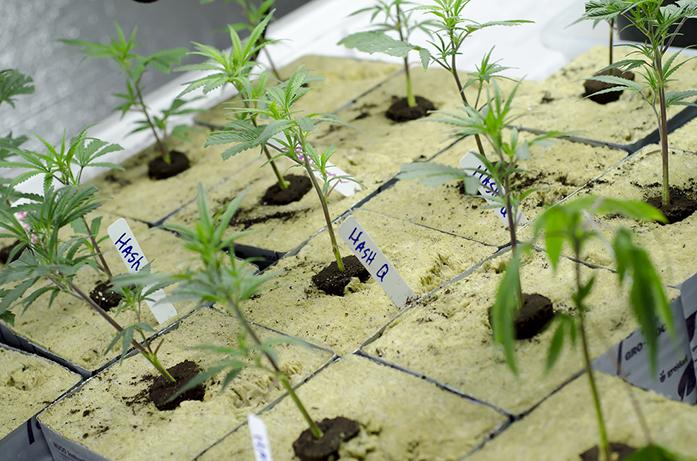By Zach Weigel
Election Day has come and passed, yet people are still chiefly concerned with Trump’s improbable triumph. But, there are other results that warrant discussion.
On Nov. 8, eight of nine states succeeded in passing measures regarding marijuana, either recreationally or medicinally. Maine, Massachusetts, Nevada, and California passed initiatives on recreational marijuana. Thus, these states have joined Alaska, Washington, Colorado, Oregon, and the District of Columbia as “weed-legal” areas. Along with these states, medical marijuana became legal in Florida, Arkansas, Montana, and North Dakota, which set the number of states allowing medicinal marijuana up to 28, along with D.C.
These results mean that a majority of the states now approve of marijuana for medical purposes. However, it appears Iowans hoping for big advances in marijuana legislation are likely to be disappointed in the near future. Currently, Iowa is not one of the 28 pro-medical marijuana states. Although in 2014 the Iowa Legislature passed a bill allowing marijuana to be used as a treatment for those with severe epilepsy, there is still no law permitting the widespread use of marijuana for medical purposes.
You may think it is odd that Iowa, one of the first states to legalize gay marriage, is behind the times when it comes to marijuana. In March, a Des Moines Register poll found that 78 percent of Iowans support medical marijuana. So why hasn’t Iowa followed suit and legalized medical marijuana across the board, rather than restricting it only to patients with epilepsy?
First, Iowa doesn’t have a large enough grassroots initiative. Some states, such as California, frequently use advocacy groups to circumnavigate the legislative process by giving grassroots efforts the capacity to propose policies or amendments that are then voted up or down by citizens. Meanwhile in Iowa, a policy must go through the proper political processes by first making it through the state Legislature and then ultimately through the governor.
Second, even though Iowa doesn’t have the initiative that would allow direct action on issues, you would also think that if 78 percent of popular support would lead to government action regarding the issue. After all, aren’t our representatives supposed to represent the interests of their constituents?
To this end, there have been numerous efforts in the state Legislature over the last few years to broaden medical marijuana use in Iowa, but they have all failed. This could be a result of strong Republican leadership in Iowa.
Admittedly, it’s tough to figure out exactly why things do or do not happen, but intuition says that a Republican governor and Republican controlled House of Representatives might be the force blocking action on marijuana policy in Iowa.
Now that Iowa now has a unified Republican controlled government, owing to the party’s recent victory in the Iowa Senate, it would appear that Iowa will not join the rash of states legalizing marijuana. Then again, who knows? The Cubs won the World Series, and the Hawks knocked off Michigan, so anything is possible. But I think it’s safe to say that expanded marijuana legalization in Iowa is unlikely in the next political cycle.



